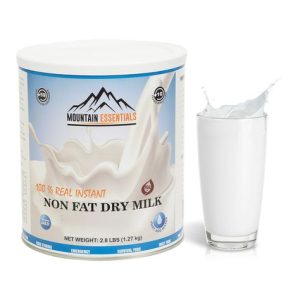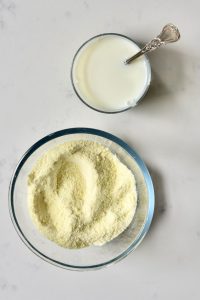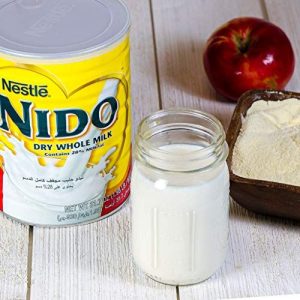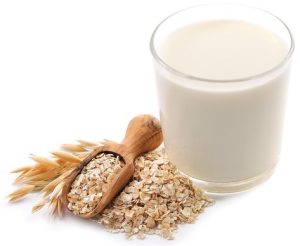Is organic milk powder better for your health? Organic milk powder is a shelf-stable alternative to liquid milk. It’s made by drying pasteurized milk from cows raised according to organic standards. But is it healthier than conventional milk powder? This article explores the differences between organic and conventional milk powder and investigates their nutritional content.
Understanding Organic Milk Production
Organic milk comes from cows raised according to specific guidelines. These guidelines typically include:
- Limited use of antibiotics and growth hormones
- Access to pastures for grazing
- Organic feed free from synthetic pesticides and fertilizers
These practices aim to be more environmentally friendly and promote animal welfare.
Nutritional Profile Comparison
Both organic and conventional milk powder are good sources of essential nutrients. Here’s a look at some key nutrients and how they compare:
Protein:
Milk powder is a concentrated source of protein. One serving provides a significant amount of protein to support growth and development. There’s no significant difference in protein content between organic and conventional milk powder.
Fat:
Milk powder contains milk fat, which provides energy and essential fatty acids. The fat content can vary depending on whether the milk was whole, reduced-fat, or skim milk before drying. There’s minimal difference in fat content between organic and conventional milk powder of the same type.
Vitamins and Minerals:
Milk powder is a good source of calcium, vitamin D, and other essential vitamins and minerals. These nutrients are important for bone health, immune function, and overall growth. There may be slight variations depending on the specific processing methods, but both organic and conventional milk powder retain most essential nutrients.
Overall, the nutritional content of organic and conventional milk powder is quite similar.
Potential Benefits of Organic Milk Powder
While the core nutrients are similar, some potential benefits are associated with organic milk powder:
-
Reduced Exposure to Pesticides and Antibiotics: Organic milk production avoids synthetic pesticides and antibiotics. Choosing organic minimizes potential exposure to these substances in your milk powder.
-
Environmental Impact: Organic farming practices can have a positive impact on the environment. Choosing organic milk powder can support these practices.
These are potential benefits, but more research is needed to confirm any long-term health advantages.
Choosing the Right Milk Powder for You
When choosing milk powder, consider your needs and preferences. Here are some factors to think about:
-
Fat Content: Do you need whole milk powder, reduced-fat, or skim milk powder? The fat content affects calorie count and taste.
-
Source: Organic or conventional milk powder? Consider your priorities regarding potential pesticide and antibiotic exposure and environmental impact.
-
Brand and Price: Milk powder prices can vary depending on the brand and source. Shop around to find a good fit for your budget.
Remember, both organic and conventional milk powder can be part of a healthy diet.
Organic milk powder offers a shelf-stable alternative to liquid milk with a similar nutritional profile to conventional milk powder. If you’re concerned about potential pesticide and antibiotic residues or the environment, organic milk powder might be a good choice. Ultimately, the best milk powder is the one that meets your family’s needs and preferences.
Consult your doctor or a registered dietitian for personalized advice about choosing the right milk powder for you.
Understanding Milk Powder and Its Uses
Milk powder is a versatile ingredient with a long shelf life. It’s made by drying pasteurized milk, concentrating its nutrients and making it easier to store and transport. Here are some common uses of milk powder:
-
Infant Formula: Milk powder is a base ingredient in many infant formulas.
-
Baking and Cooking: Milk powder adds creaminess and richness to baked goods and can be reconstituted for use in recipes.
-
Emergency Food Source: Milk powder has a long shelf life and can be a good source of nutrients in emergency preparedness kits.
Considering Alternatives to Milk Powder
While milk powder is a convenient option, there might be other choices depending on how you plan to use it:
-
For Infants: Always consult with a pediatrician before choosing a formula for your baby. They can advise on the best formula type based on your baby’s specific needs.
-
For Baking and Cooking: Consider using fresh or shelf-stable liquid milk depending on the recipe and your preferences.
-
For Emergency Preparedness: There are other non-perishable food options that might be more suitable for your needs. Research suggests that dried beans, canned vegetables, and whole grains can offer a more balanced source of nutrients for long-term storage.
Focus on a Balanced Diet
The debate about organic versus conventional milk powder centers on potential trace elements and how our bodies might process them. Regardless of the source, milk powder offers a concentrated source of nutrients for various uses.
Here’s where to focus your attention for optimal health:
-
Variety is Key: A balanced diet rich in fruits, vegetables, whole grains, and lean proteins provides a wider range of nutrients than any single source like milk powder.
-
Fresh Produce: Whenever possible, opt for fresh fruits and vegetables over processed foods. Fresh produce delivers essential vitamins, minerals, and fiber in their natural form.
-
Dietary Needs: If you have any specific dietary needs or concerns, consult a doctor or registered dietitian. They can provide personalized advice based on your health and goals.
By focusing on a balanced diet that incorporates a variety of healthy options, you can ensure you’re getting the nutrients your body needs to thrive.

Making an Informed Decision
Organic and conventional milk powder offer similar nutritional value. The choice between them depends on what factors matter most to you. Here’s a breakdown to consider:
-
Potential Pesticide and Antibiotic Residues: Organic milk production avoids synthetic pesticides and antibiotics in feed and animal care. Choosing organic minimizes potential exposure to these substances in your milk powder.
-
Environmental Impact: Organic farming practices can have a positive impact on the environment, such as reducing soil erosion and promoting biodiversity. Choosing organic milk powder supports these practices.
-
Price: Organic milk powder is generally more expensive than conventional milk powder due to stricter production standards.
-
Availability: Organic milk powder might be less readily available than conventional milk powder, depending on your location.
Ultimately, the decision of whether organic milk powder is “better” for your health depends on your individual priorities and circumstances.
Conclusion
Organic and conventional milk powder provide similar core nutrients. When making a choice, consider your priorities – potential pesticide or antibiotic residues, environmental impact, or simply finding a convenient source of milk nutrients.
Remember, a balanced diet rich in a variety of fresh foods is the cornerstone of good health. Consult a doctor or registered dietitian for personalized advice about your dietary needs.




